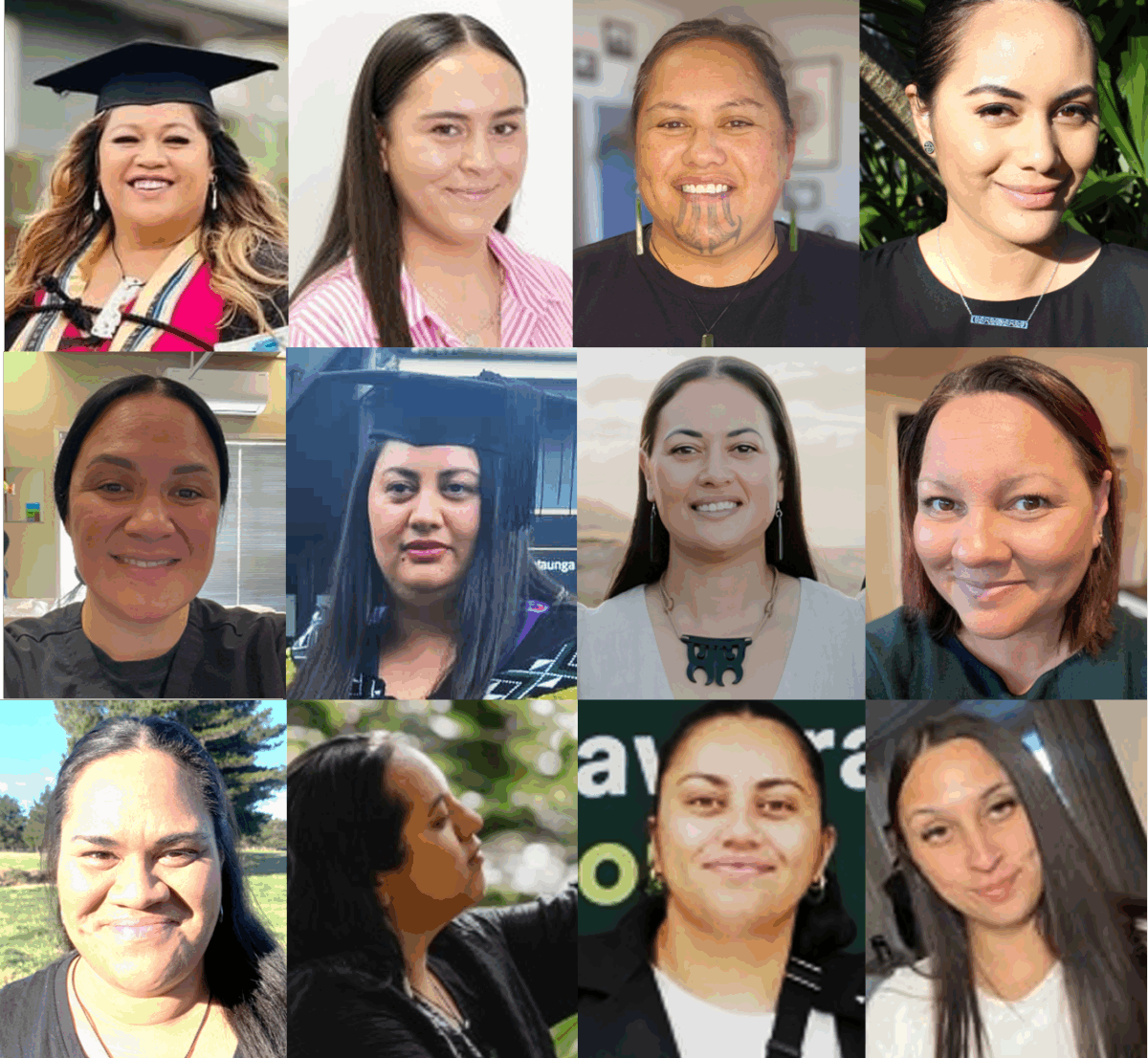The awards acknowledge the mana and the mahi of 12 nurses who will receive grants sponsored by PHARMAC.
They were presented with the awards in Rotorua at this year’s annual Indigenous Nurses Conference Aotearoa.
“Each of these nurses has a special story to tell, but they all have one thing in common – their passion and aroha for the health and wellbeing of their people,” NZNO kaiwhakahaere Kerri Nuku said.
“Māori nurses are not only dedicated professionals but great innovators. These awards provide a wonderful opportunity to showcase their day-to-day mahi for the betterment of their people, hei oranga motuhake mo ngā whānau, me ngā hapū, me ngā iwi katoa.”
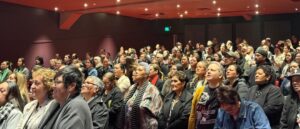
She said the awards are a great example of how PHARMAC is working across the health system to strengthen relationships with Māori health professional groups and uphold the articles of Te Tiriti across all its work.
“We are honoured to be part of this initiative to celebrate and support the incredible contributions and aspirations of Māori in the health sector.”
2025 recipients
Billie Ellis: ‘I want to be a culturally safe and compassionate nurse’
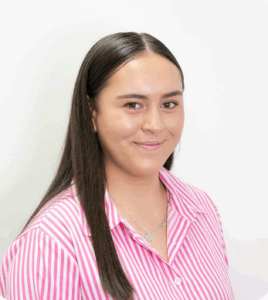
Iwi: Ngāti Hikairo–Ngāti Tuwharetoa
Award category: Māori Nurse Mātauranga
The 21-year-old is in her final year of a nursing degree at the Southern Institute of Technology in Invercargill.
But while most graduates her age want to head to hospital emergency departments, Ellis has her heart set on working with Māori in the community.
“I am passionate about becoming a culturally safe and compassionate nurse who supports hauora Māori and contributes meaningfully to reducing health inequities across Aotearoa.”
Ellis currently works part time at Ngā Kete Mātauranga Pounamu Charitable Trust, a kaupapa Māori health organisation where she gets to learn first hand about whānau-centred approaches to care.
“My role as a medical receptionist in the after-hours GP clinic allows me to work directly alongside whānau from all over Aotearoa who access services at some of their most vulnerable times,” Ellis said.
“I have learned that clinical knowledge alone is not enough to be an effective nurse in Māori health; empathy, cultural connection and the ability to walk alongside whānau with aroha are equally essential.”
Ellis is also keen on health promotion.
“I am passionate about educating whānau about their health to help reduce the disproportionate rates of chronic conditions such as cancer, diabetes, cardiovascular disease, and asthma, which continue to place Māori among the highest-risk groups in Aotearoa’s health system.”
The award will allow Ellis to continue her studies while maintaining her involvement in Māori health and would also support her future aspiration to work in both rural and kaupapa Māori health services.
“I am committed to uplifting the mana of my people through nursing and embodying the principles of kaitiakitanga in every aspect of my practice.”
Pirihira Puata: Medicine in her people’s language
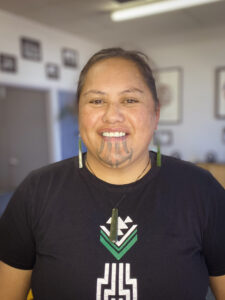
Iwi: Ngai Takoto, Te Aupouri, Ngapuhi, Tapuika
Award category: Māori Nurse Mātauranga
Puata is a nurse prescriber at Te Hononga O Tamaki Me Hoturoa in Auckland.
The 51-year-old fluent speaker of te reo Māori has a deep commitment to ensuring equitable access to health-care for whānau, with a focus on supporting their understanding and adherence to prescribed medications.
“In my role, I recognise that true kaitiakitanga involves not only prescribing safely and effectively but also empowering whānau to make informed decisions about their health through culturally appropriate, accessible information.
“As nurses working at the frontline of care, we are uniquely positioned to provide timely, accessible, and culturally responsive prescribing that meets the needs of whānau where they are,” Puata said.
“For many Māori whānau and those facing socio-economic barriers — traditional models of care can create delays or obstacles in accessing essential medications.”
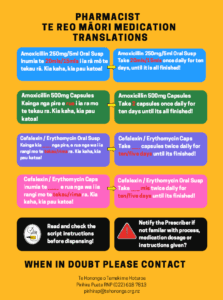
To address the barriers many whānau face in navigating medications, Puata has led the development of bilingual prescribing initiatives, including Te Hononga Pharmacist Te Reo Māori Medication Translations.
Much of Puata’s mahi sees her work with kura kaupapa Māori, marae and pharmacists to advocate for bilingual medication labels and counselling that reflect the language and values of Māori communities.
“When Māori nurses take on prescribing roles, they help decolonise and re-shape the health system from within. It grows leadership and clinical capacity within iwi-led and kaupapa Māori services, ensuring decisions are made by those who understand Māori needs, tikanga, and aspirations.”
Puata said the award would help her strengthen her relationship with local Māori pharmacists and pharmacies to create more Māori and bilingual medication and adherence resources.
Waiharakeke Ruha-Hiraka: Bridging gaps for rural Māori
Iwi: Ngāti Awa
Award category: Māori Nurse Mātauranga
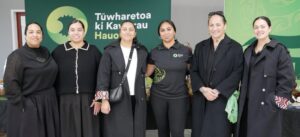
Ruha-Hiraka is a nurse at Te Whare Haumanu, a nurse-led kaupapa Māori clinic in the eastern Bay of Plenty rural town Kawerau where a key part of her role is delivering health services to children under a programme called Well Child Tamariki Ora.
The 27-year-old RN became a nurse so she could serve her community and be “a vessel of mātauranga, care, and awhi” for those who raised and stood by her.
Having no formal experience in tamariki ora or child health, besides being a mother to her own children, she is on a path to upskilling with a postgraduate certificate in primary health-care specialty nursing from Whitireia in Porirua.
“[This work] has transformed and strengthened my practice. I now walk alongside whānau during the foundational stages of their lives, including many with whom I share whakapapa connections.
“The care I provide is not just clinical, it is cultural, relational and grounded in manaakitanga and whakawhanaungatanga. I understand the barriers our whānau face because I live within the same systems and realities,” Ruha-Hiraka said.
“This creates a level of trust and shared understanding that is difficult to replicate outside of a Māori context.”
Even after securing the certificate, Ruha-Hiraka plans to keep focused on advancing her nursing knowledge.
“Kawerau, like many rural communities, faces a significant GP shortage, which creates barriers to timely and accessible health-care for whānau. I see a clear need for nurse prescribers who understand the community, whakapapa and cultural context.
“By stepping into this space, I hope to bridge that gap, ensuring our people receive prompt, whānau-centred and culturally safe care grounded in kaupapa Māori values.”
Prior to working at Te Whare Haumanu, Ruha-Hiraka worked as an RN at Tūwharetoa ki Kawerau Hauora in the mental health and addictions space.
Rangi Blackmoore-Tufi: Taking nursing beyond the clinic
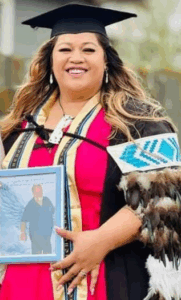
Iwi: Ngāpuhi
Award category: Māori Nurse Mātauranga
The 37-year-old mother is an RN at Auckland City Hospital and is renowned in Māori nursing circles for her “networking superpowers.”
“This past year has been a real shift for me, not just in how I work as a nurse, but in how I see myself within our bigger kaupapa . . . I’ve come to realise that my role isn’t just about what I do in a hospital or clinic. It’s about being there for our people, wherever they need me.”
Last year Blackmoore-Tufi joined the largest political demonstration in the history of Aotearoa, hīkoi mō te Tiriti, from the top of the North Island to its destination in the capital.
“I became the hauora lead, checking on our people, being available 24/7, sorting swabs, antibiotics, even calling on my networks to get nurse practitioners or doctors to meet us along the way. It was full-on, but I knew I was exactly where I needed to be.”
“I’m still studying in my final paper of my masters now, and I see my future more in leadership, supporting other Māori nurses, influencing systems and staying grounded in the mahi that helps our whānau directly.”
Blackmoore-Tufi’s aspiration is simple: “to keep showing up for our people” and after her masters to start up her te reo Māori journey, citing that there simply not enough nurses who are fluent speakers of the language.
She said this award would allow her to keep growing her knowledge base to benefit Maori without having to worry about a financial strain.
Catherine Mear: Not about a career, it’s about serving
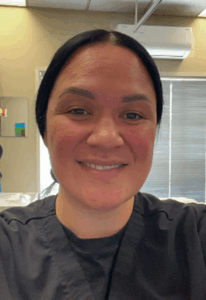
Iwi: Ngāti Whakaue; Ngāti Kahungunu ki Wairoa; Ngāti Porou; Te Whānau a Apanui
Award category: Nurse Practitioner or Nurse Prescribing Award
Th 38-year-old is an RN at Te Rūnanga o Ngāti Pikiao in Rotorua. And right now she’s on her way to becoming a nurse practitioner.
She admits that the NP training programme has pushed her “beyond clinical competency,” challenging her to reflect on the kind of role she should take in Māori health.
“I never really envisioned myself as a ‘leader’, and never sought to be, but this journey has showed me that a leader can present in many forms,” Mear said.
“I don’t seek to become a NP simply to advance my career, I seek this role to serve . . . I want to work in spaces where Māori feel safe, seen and valued, whether in kaupapa Māori services, marae-based care or community clinics.”
Through advanced clinical training, she has managed to strengthen her ability to assess, diagnose and prescribe safely and effectively. But more importantly, she has learned how to share clinical expertise with cultural humility, in pursuit of equity, and with a commitment to upholding Te Tiriti o Waitangi in everyday practice.
“I grew up between two worlds, often feeling disconnected from te ao Māori after losing the man who raised me. I navigated racism and disconnection from parts of my whakapapa.
“And yet, through this pain, I found my way back. I reclaimed my identity. I found my reo. I stood again on my marae,” Mear said.
“These experiences are not separate from my nursing practice; they are the reason for it.”
She is proud to note that her children attend a total immersion Māori language school.
This scholarship would allow her to continue professional development and grow as both a clinician and a leader.
Renae Porter: A prescription for clinical and cultural excellence
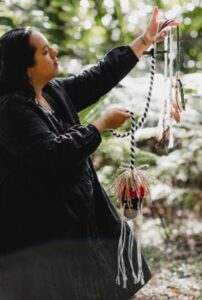
Iwi: Ngāti Awa, Te Whakatōhea, Ngāi Tai, Te Whānau-a-Apanui, Ngāi Tūhoe
Award category: Nurse Prescribing Award
The 46-year-old is an RN at Tūwharetoa ki Kawerau Education and Social Services in the rural eastern Bay of Plenty town of Kawerau, where she’s only a couple of steps away from becoming a designated prescriber.
“Embarking on this journey is not merely a professional advancement, it’s a commitment to cultural integrity, community service and the pursuit of equitable health-care for all Māori.”
Porter also planned on becoming an NP once she has completed her prescriber tohu or training.
“Integrating into a designated prescriber role firstly, will help to address immediate health-care disparities, particularly within primary care.
“My tohu will allow me to blend clinical knowledge with cultural understanding, which fosters trust and improves health outcomes for my community, while also fostering and cultivating leadership and mentorship for other aspiring Māori health professionals.”
Porter said that navigating and overcoming systemic barriers was made more achievable through initiatives such as the Tapuhi Kaitiaki Awards.
“The awards provide continued essential financial support to Māori nurses like myself, pursuing advanced education in clinical roles.
“Kawa whakaruruhau guides my practice, and for Māori nurses this involves the integration of tikanga, traditional values and practices into clinical care, ensuring that services are both culturally effective and resonant.”
Sheryl Eckersley: A passion for kaumātua health
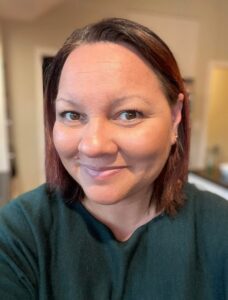
Iwi: Ngāti Porou, Te Aitanga a Mahaki
Award category: Nurse Prescribing Award
The 45-year-old is passionate about the health and wellbeing of kaumātua. This is what has driven the RN for Te Whatu Ora in the Horowhenua to take up nurse prescriber training.
“This tohu marks a significant milestone in my journey toward becoming a nurse practitioner and advancing whānau-centred care in elder health.
“Over the past decade, I have served as a senior nurse across hospital, community and iwi settings.”
From leading an elder health team at Te Whatu Ora to working as kaiwhakahaere hauora at Muaūpoko Tribal Authority, Eckersley has maintained an unwavering focus on restoring oranga and tino rangatiratanga for kaumātua and whānau.
“My practice is underpinned by Te Tiriti o Waitangi, Te Whare Tapa Whā and Pae Ora which guide me in addressing systemic barriers and elevating Māori voices in clinical spaces.”
Right now she is completing the practicum part of the prescriber training and already that is enhancing her ability to provide safe, timely and culturally responsive treatment, particularly for the ageing Māori population.
“I regularly witness delays in medication access and fragmented care due to limited prescribers and poor GP access in rural regions like Horowhenua. Nurse prescribing will allow me to bridge these gaps and deliver immediate, holistic care grounded in tikanga and whanaungatanga.”
The award would help Eckersley cover the full cost of the course, including tuition and travel for block days in Auckland.
Serene Morrell: People, land and environment all go together
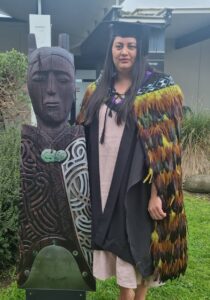
Iwi: Ngāti Porou, Ngāti Kahungunu, Ngāi Tahu
Award category: Nurse Prescribing Award
The 38-year-old is an RN at Kahungunu Health Services in the Hawke’s Bay.
“As a proud Māori nurse who is about to pursue study to become a nurse prescriber, I reflect on the path that has brought me here. A journey deeply rooted in kaupapa Māori, collective responsibility and a commitment to advancing equitable health-care for our people and whenua.
“My clinical practice has always been more than just a profession, it is an extension of my identity, my whakapapa and my responsibility as a kaitiaki of both whānau and environmental wellbeing.”
Even outside of her mahi as a nurse, Morrell is deeply involved in her tribal affairs having recently been appointed as a trustee for her marae and her iwi’s post-settlement governance entity Tamatea Pokai Whenua.
“This role has provided me with a deeper understanding of how governance, resource allocation and historical redress intersect with the social determinants of health.
“As part of this mahi, I draw directly on the findings and significance of Wai 2575 the Waitangi Tribunal Health Services and Outcomes Inquiry which exposed the Crown’s breaches of Te Tiriti in the health sector, relating to systemic underfunding of Māori health services and inequities faced by Māori nurses.”
Her pursuit of a nurse prescriber qualification is the next natural step in her journey as a Māori health professional.
“It offers me the clinical authority to respond more effectively and autonomously to the needs of whānau, particularly in rural and under-served communities. For too long, Māori have faced systemic inequities in access, treatment, and outcomes. I am committed to challenging those barriers not only through the lens of culturally safe clinical care but also through leadership, education and policy advocacy.”
While her aspiration to become a nurse prescriber is clinical advancement, she said it was underpinned by a vision of mana motuhake in health.
Te Aroha Moeke-Ormond: Caring and ‘aroha’ comes naturally to her
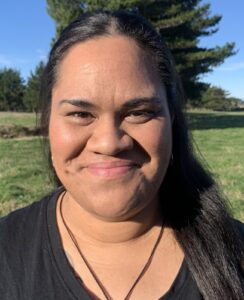
Iwi: Ngāti Porou, Rongomaiwahine
Award category: Māori Nurse Mātauranga
The 33-year-old solo mum is halfway through nursing studies at Southern Institute of Technology in Invercargill, with dreams of becoming a Māori nurse who not only provides excellent care, but also uplifts whānau through culturally grounded education and collective empowerment.
“My hope is to walk alongside our people as a familiar and trusted presence in spaces that often feel cold and clinical.”
Her first name Te Aroha name means the “loving, affectionate, caring, compassionate and empathetic” one.
It was during her aged care placement last year, where she cared for a non-verbal Māori woman who required full assistance, that she got even more bursts of inspiration to become a nurse.
“When she saw me, her face lit up — no words were needed. That moment deeply affirmed how our presence alone can create connection and comfort for kaumātua who may feel isolated within clinical settings.
“It reminded me of the powerful healing that comes simply from being seen, recognised and understood by someone who shares your whakapapa and wairua.”
Moeke-Ormond has also learnt how health literacy remains a major barrier for many Māori people.
“Often, they’re handed medications without clear explanations or choices, which only deepens the mistrust. I want to help change this narrative.”
Looking ahead, she wants to create and deliver community-based wānanga that are safe, collaborative spaces where whānau can come together to learn about their medications, explore treatment options and build confidence in navigating the health system.
“These aren’t just distant dreams, they’re part of my intention to one day return home and work within my own rohe. I want to bring everything I’ve gained through study and experience back to my people, delivering care and education that’s rooted in trust and aroha.”
Te Waimaarino Patena: Prescribing isn’t just about medication
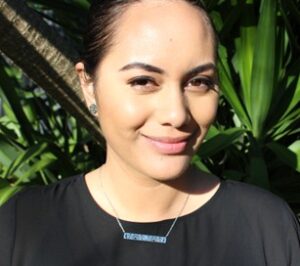
Iwi: Ngāti Haua, Ngāti Kahungunu, Ngāti Porou
Award category: Nurse Prescribing Award
The 31-year-old is an RN at Te Kohao Health in Hamilton who is working towards becoming a nurse prescriber to deepen her clinical knowledge and better serve her whānau, hapū and iwi.
“I bring cultural integrity, compassion and a strong sense of accountability to my practice. This scholarship will support me in becoming a competent nurse prescriber, allowing me to offer timely, culturally responsive care, reduce health inequities and strengthen the mana of my people.”
Patena is committed to making a tangible difference in Māori health outcomes through leadership, clinical excellence and whakawhanaungatanga.
“Whakapakari, meaning to strengthen or build up, is central to my professional journey as a Māori nurse. To whakapakari my practice is to acknowledge that the health and wellbeing of our people is deeply rooted in whakapapa, whanaungatanga and a commitment to equity.
“As a Māori nurse undertaking nurse prescribing training, I see this as a powerful opportunity to uplift and enhance the health status of our whānau, hapū and iwi.”
She said prescribing is not just about medication—it’s about understanding the broader determinants of health and making decisions that are grounded in te ao Māori.
“Ultimately, I see nurse prescribing as an extension of my whakapapa—another layer of responsibility I carry for those who came before me and those yet to come. I am committed to continuing this legacy with integrity, aroha and unwavering dedication to the health and wellbeing of my people.”
Puaawai Te Pou: Dad’s death inspires her to become a nurse practitioner
Iwi: Ngāti Tuwharetoa, Te Whanau a Apanui
Award category: Nurse Practitioner Award
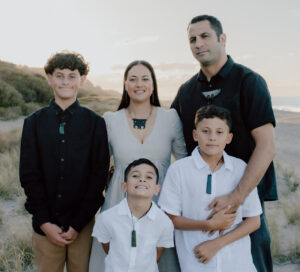
The 40-year-old mum is an RN and nursing leader at Tūwharetoa ki Kawerau Education and Social Services in the rural eastern Bay of Plenty town of Kawerau, who is on a mission to become a nurse practitioner.
“My aspiration and purpose is to be able to serve my whānau, hapū, iwi through culturally safe and holistic health-care. I believe that healing is not just about treating illness, it’s about acknowledging all aspects of a person’s life.”
Witnessing health disparities that disproportionately affect Māori communities has affected Te Pou personally.
“My father passed away from polycystic kidney disease, and throughout his journey, I saw firsthand the challenges he faced in navigating the health-care system.
“He encountered multiple barriers, poor access to health services and a lack of adequate support and culturally appropriate care from health professionals and specialists.”
That experience has deeply strengthened her commitment to become part of the solution for Māori whānau.
“As a nurse practitioner, I will be in a position to provide greater access to health-care, work at an advanced clinical level, and advocate strongly for whānau. I am passionate about contributing to the reduction of health inequities by delivering care that is grounded in manaakitanga and aligns with the needs and values of our people.
“I want to lead with manaakitanga, work in kotahitanga with whānau, hapū and iwi, and ensure Māori voices are heard and respected placing them at the centre of their health-care journey.”
Ashleigh Hesseltine: A champion for rangatahi

Iwi: Ngāti Porou
Award category: Nurse Prescribing Award
The 30-year-old is an RN at Kahungunu Health Services in the Hawke’s Bay, on a journey to become a nurse prescriber with a focus on rangatahi or Māori youth and preventative care.
Hesseltine works in an open access nurse-led clinic, dealing with many young clients whose needs are not just specific to health.
“I have a passion for educating and upskilling our rangatahi and young parents, especially about their sexual and reproductive health.
“For example, a young māmā may come in for a pregnancy test, and walk away with a sexual health check, her cervical screening done, her referral to midwifery care, her antenatal bloods done and her prenatal vitamins prescribed,” Hesseltine said.
She could also be referred to smoking cessation, an appointment for a mirimiri and she would be directed to our kaiāwhina for help with emergency housing, if that is needed.
She embeds kaupapa Māori models and tikanga into her everyday nursing practice, and gaining a nurse prescriber qualification would allow her to help more rangatahi access faster and better health-care.
“My learning ensures that I am not only improving my own knowledge but actively contributing to strengthening collective practice for Māori.”



